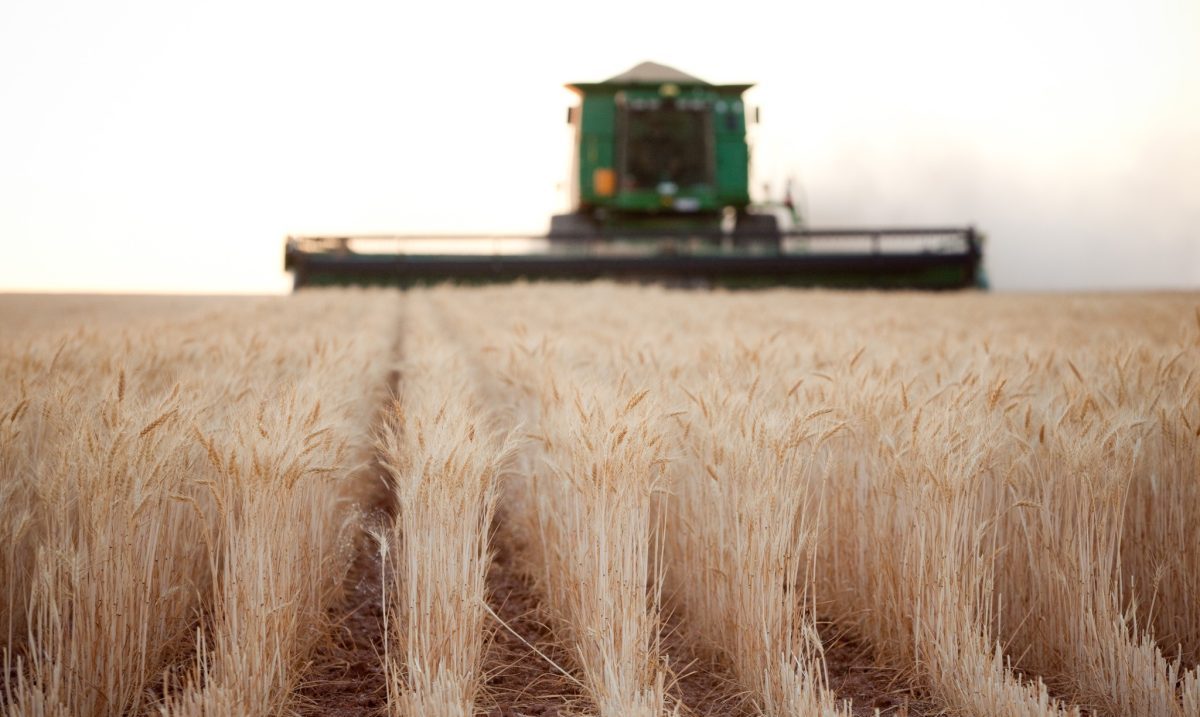
Rabobank says the grains sector had an exceptional 2022, and the outlook for 2023 is seen as positive. Photo: GRDC
THE GOOD times are expected to continue into 2023 for Australia’s agricultural sector, although a repeat of last year’s exceptional performance is unlikely, according to a report released this week by Rabobank.
In its report titled Continuing on a successful path, Rabobank says a stand-out 2022 – with high, often record, commodity prices and good to partly-record production volumes – has put the nation’s farm sector in a healthy position for the year ahead.
But it cautions against expectations of a repeat of last year’s stellar conditions in the agricultural sector, which were overall “exceptional”, despite the impacts of severe flooding in some regions.
“Beef, dairy, grain, oilseeds and canola prices all hit excellent and often record levels in Australia at a time when our farmers produced good to excellent volumes,” the report said.
“This was a fantastic combination which allowed Australian farmers to cash in because these factors far outpaced the significantly-elevated cost of fertilisers, energy, interest rates and farmland.
“2023 will bring many opportunities, (but) those with overly-inflated expectations of a repeat of 2022 might be disappointed as the world heads into recession.”
Last year’s agricultural commodity prices were driven to record levels as a result of the war in Ukraine, supply-chain issues related to COVID, and labour shortages, as well as global market tightness and volatile input prices.
They are forecast to track at less elevated levels through 2023, albeit at “well above the five-year average”.
Report lead author, RaboResearch general manager Australia and New Zealand Stefan Vogel said prices for grains and oilseeds and beef had moved notably below highs seen last year.
He said 2023 was likely to “deliver good, but not record, prices in an environment of elevated costs and global recession”.
The Rabobank Rural Commodity Price Index, which tracks local prices of key commodities in Australian-dollar terms, is forecast to continue to ease from record highs reached in Q2 2022 over the course of this year, albeit to still track above the five-year average with a chance of rising again in late 2023.

Stefan Vogel
Production, returns above average
Mr Vogel said the 2023 production outlook for Australian agriculture was once again positive.
“Favourable weather conditions in 2022 – with much of the east coast having received plentiful rainfall, even too much in some cases – have provided good soil-moisture levels and also filled supplies for irrigation,” Mr Vogel said.
“And while the rainfall outlook for 2023 isn’t as high, this should also mean less weather disruptions for the sector.
“This sets the scene for another positive year of farm production in 2023; however, a repeat of 2022’s abundant grain and fodder production is not – at least yet – expected.”
Farm inputs bite, freight drops
Cost pressures will continue to weigh on the farm sector, with costs forecast to remain above historic averages, albeit with global fertiliser prices now down 40-50pc from their peak.
“Locally, fertiliser prices have not fully replicated this extent of decline,” Mr Vogel noted.
“A return to the highs seen in fertiliser prices last year is unlikely, but besides supply and demand, gas and grain prices need to be watched carefully to determine the ultimate direction of fertiliser prices.”
Mr Vogel said freight rates for both dry containers and bulk have fallen “massively” back to normal levels as recession fears weigh on the trade outlook.
Freight reliability, though, is still below normal.
“Ag businesses need to continue to plan early and remain flexible in 2023 as we will still see delays in delivery of machinery and other farm inputs.”
Mr Vogel said labour shortages will persist, “but, as with supply chain disruptions, the industry has learned to live with and work through them.”
Interest rate rises are likely to have some further way to go in the first half of 2023, Rabobank forecasts, with “serious cuts” not to be expected until 2024.
“The Australian dollar is expected to remain around current levels with a slight strengthening later in the year, which will still support our exports, but makes our imports a little less expensive compared with the second half of 2022.”
Global factors positive for grains
A number of global factors are also working in favour of an optimistic outlook for Australia’s ag sector, Mr Vogel said.
These include the slow pace of recovery in global commodity supplies, with shortages in grain and still-slow supply recovery in world beef and dairy production.
“We don’t see right now that 2023 will suddenly be filled with a lot of products in these commodity sectors, but rather a gradual recovery.
“That’s good news for Australian farmers, although it doesn’t bring us back to the all-time price highs we had last year, driven by the Ukraine war.”
China’s surprise U-turn on its zero-COVID policy should also open up its economy and potentially increase consumer demand in this important market, Mr Vogel said, although the short-term economic and trade impacts remain uncertain.
Geopolitical risks also remain, he said, including with China, and Australia will need to continue to work on diversification of export markets.
Global recessionary pressures also hang over the local Australian agricultural sector, the Rabobank report says.
“Australia is likely to avoid a recession, but inflation remains a concern locally and globally.
“Heightened interest rates are tightening the belts of consumers.”
Mr Vogel said this will impact both consumer demand and trade.
“The impact on consumption is being felt differently in different product categories as consumers trade down on quality and price.
“Dairy and animal protein will have to navigate this, while the price decline in grains will offset any volume reduction risk.”
Source: Rabobank
Grain Central: Get our free news straight to your inbox – Click here

HAVE YOUR SAY